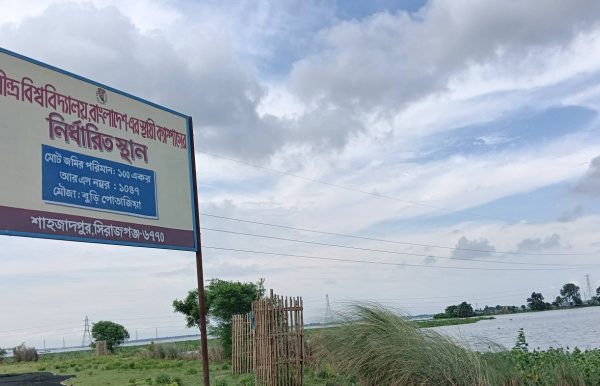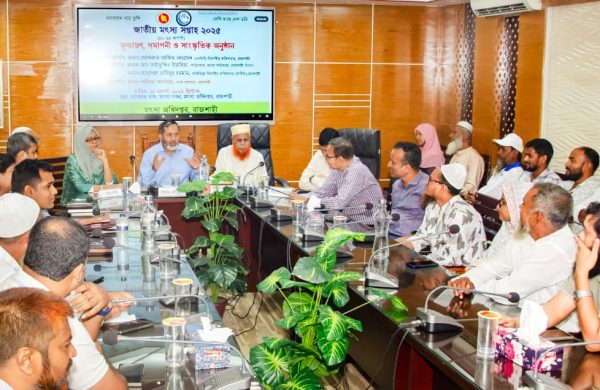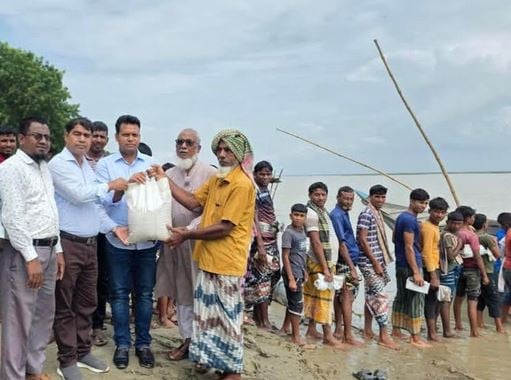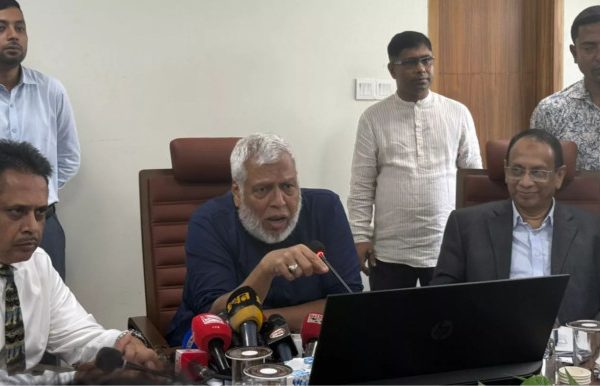Rohingya Crisis at Breaking Point: Why the World Must Act
- Update Time : Friday, August 22, 2025

—Dr Shahidul Islam—
The Rohingya crisis is spiralling into a dangerous new phase, with conditions in the refugee camps deteriorating daily. Global leaders continue to promise action, including high-profile commitments from figures like the UN Secretary-General, but on the ground, aid is dwindling, despair is deepening, and there is still no credible plan for repatriation.
In the past 18 months, an estimated 150,000 new Rohingya have fled targeted violence in Myanmar’s Rakhine State and crossed into Bangladesh. This influx has stretched Cox’s Bazar’s already overcrowded camps to the breaking point. More than 1.2 million Rohingya now live within just 24 km2, making it one of the most densely populated settlements in the world. Yet international funding and diplomatic engagement are retreating at precisely the moment when they are most needed.
The UN Secretary-General António Guterres pledged to do everything possible to convince the international community to support Rohingya repatriation during his March 2025 visit to Bangladesh. His words raised hopes that the crisis might again command global attention. At the 4 April 2025 BIMSTEC Summit in Bangkok, Myanmar’s deputy prime minister announced that 180,000 Rohingya had been identified for the first phase of repatriation, with another 70,000 under verification, the first concrete repatriation list in years. But months later, progress has stalled. There is no timeline, no verified safe zones in Rakhine and no guarantees of rights or protection for returnees.
The truth is clear: no repatriation deal will succeed without addressing the core problem: the absence of peace, security and rights guarantees in Rakhine State. For decades, Myanmar’s military has subjected the Rohingya to systemic persecution, which UN investigators have described as crimes against humanity, including the ongoing crime of apartheid. Today, much of Rakhine is under the control of the Arakan Army, which, according to human rights groups, is imposing oppressive policies alarmingly similar to those of the military. With clashes between the Arakan Army and Myanmar’s military ongoing, the region is unstable and unsafe. Returning Rohingya without enforceable guarantees of safety, citizenship and dignity would be reckless and counterproductive.
If the international community is serious about repatriation, it must first broker peace in Rakhine. That requires sustained diplomatic engagement to bring the Arakan Army and Myanmar’s military to the negotiating table, backed by international monitors to verify compliance with ceasefires and human rights protections. Without this, talk of repatriation will remain empty rhetoric.
Beyond politics, the crisis has become a matter of survival. The humanitarian response faces its worst funding shortfall since 2017. UNHCR’s $255 million appeal for health services in 2025 is only 35% funded. Without new resources, health services could collapse by September, and food assistance may cease by December, leaving 230,000 children, including 63,000 recent arrivals, at immediate risk.
Education is also under siege. At least 6,400 learning centres have been forced to suspend classes or cut hours due to a lack of funding. The UN Office for the Coordination of Humanitarian Affairs estimates $72 million is required for education this year, yet less than $10 million has been received. The total budget needed for 2025 is $934 million to support 1.5 million people—1.2 million Rohingya and 300,000 members of host communities. But by midyear, only 32% of that had been secured. Major donors, especially the United States, have slashed contributions, while new donors have failed to fill the gap.
This funding collapse is catastrophic. It is driving law-and-order breakdowns in the camps, fuelling organised trafficking and worsening environmental damage in Cox’s Bazar, that may take generations to reverse.
Each month of inaction deepens the perception that the international community has abandoned the Rohingya to permanent statelessness. This is not only a moral failure but a strategic one. Prolonged instability in southern Bangladesh threatens regional security, and continued persecution in Myanmar risks fuelling further radicalisation and displacement.
Bangladesh has carried the burden of hosting over a million Myanmar citizens for more than seven years. Its generosity cannot be met indefinitely with half-measures and symbolic visits. The responsibility is global, and the costs of inaction will not remain confined to Bangladesh.
If the world is serious about solving the Rohingya crisis, it must move beyond rhetoric to coordinated, measurable action. An immediate credible approach should rest on two pillars:
First, secure peace in Rakhine State. A durable solution begins with stability and rights guarantees. Mediated peace talks between Myanmar’s military and the Arakan Army, possibly under UN or ASEAN auspices, are essential, alongside the deployment of international monitors. Most importantly, Rohingya citizenship rights must be restored and legally enshrined to prevent further cycles of violence and displacement.
Second, restore and expand humanitarian funding. Lives are at stake now, not in the distant future. Donors must fully cover the $934 million humanitarian plan for 2025, earmarking resources for food, healthcare and education. This requires reversing recent aid cuts and mobilising new funding from emerging donors in the Gulf, East Asia and Europe. Without this, hundreds of thousands of children face starvation, disease and the loss of an entire generation’s education.
Surveys consistently show that the overwhelming majority of Rohingya wish to return to Myanmar if their safety and rights are guaranteed. The responsibility to ensure those conditions lies squarely with the international community. For too long, engagement has been reduced to symbolic visits, vague pledges and donor fatigue. That cycle must end. The sacrifices Bangladesh has made, absorbing over a million Rohingyas while facing economic, environmental and social strain, cannot be answered with indifference.
The Rohingya crisis is not an intractable problem. It is solvable, but only if world leaders summon the political will to act. If they do, the next chapter could be one of safe returns, restored dignity and regional stability. If they do not, history will remember this moment as one when preventable tragedy hardened into permanent injustice.
———————————————————————————-
The writer is an Assistant Professor, Department of Business Administration, University of Wisconsin-Green Bay. He can be reached at [email protected]



















